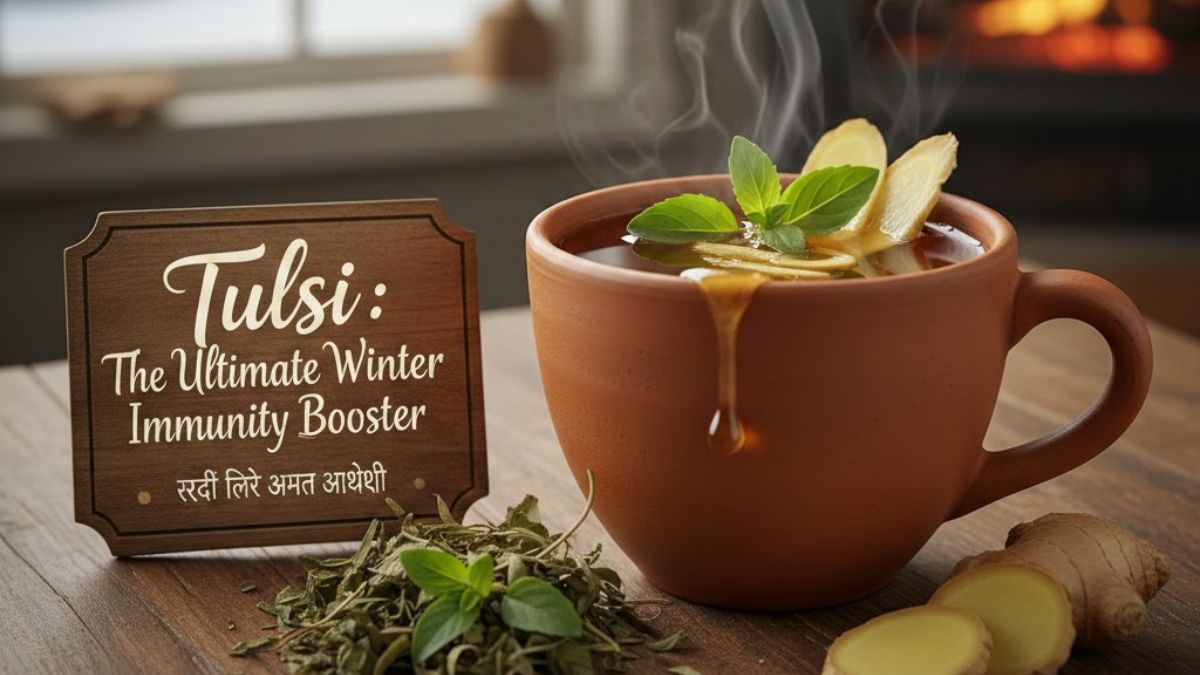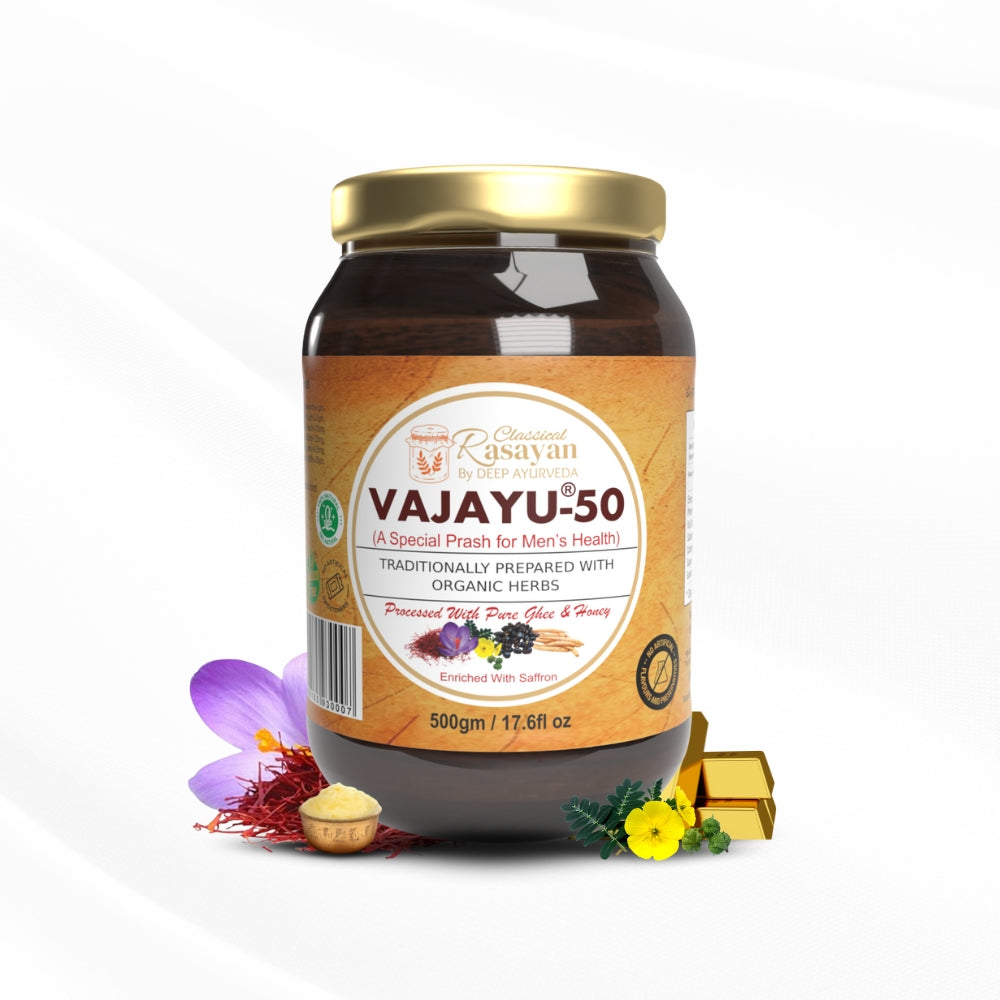Introduction
Winter in India brings more than just cool breezes—it also brings seasonal health challenges. Cold, cough, sore throat, flu, and weakened immunity are common issues during the colder months. Amid these challenges, Tulsi (Holy Basil) stands out as a natural, effective, and time-tested remedy.
Known as the “Queen of Herbs,” Tulsi has been revered in Indian households for centuries. From Ayurvedic practices to modern research, Tulsi is celebrated for its multiple health benefits, especially as a winter immunity booster. In this article, we explore why incorporating Tulsi into your daily routine can help you stay healthier, stronger, and more resilient this winter.
What is Tulsi?

Tulsi, scientifically called Ocimum sanctum or Ocimum tenuiflorum, is a sacred herb in India. There are several varieties, including:
Rama Tulsi (Green leaves)
Krishna Tulsi (Purple leaves)
Vana Tulsi (Wild variety)
Tulsi contains essential compounds like eugenol, linalool, limonene, and flavonoids, which contribute to its therapeutic properties. Traditionally, Tulsi is used in Ayurveda for treating respiratory issues, fever, stress, and digestive disorders.
Health Benefits of Tulsi
Tulsi is a powerhouse of natural benefits. Here’s a closer look:
1. Boosts Immunity

Tulsi strengthens the immune system by stimulating antioxidant enzymes and helping the body fight infections. Its antimicrobial and antiviral properties make it a natural defender against cold, flu, and respiratory infections.
2. Antioxidant and Detoxifier
Tulsi helps neutralize harmful free radicals in the body, protecting cells from oxidative stress. This property not only supports immunity but also contributes to healthy skin, hair, and overall vitality.
3. Reduces Inflammation

Tulsi contains anti-inflammatory compounds that can reduce swelling and inflammation in the body. Regular consumption may help relieve minor joint pain, respiratory irritation, and other inflammatory issues.
4. Supports Mental Health

As an adaptogen, Tulsi helps manage stress and anxiety. It may regulate cortisol levels, promote relaxation, and improve sleep quality—helping you stay mentally resilient during winter stress.
5. Supports Metabolic Health

Studies indicate that Tulsi can help regulate blood sugar, cholesterol, and blood pressure, supporting heart health and overall metabolic balance.
Why Tulsi is Essential During Winter

Winter weakens immunity, making the body more prone to infections. Here’s why Tulsi is particularly effective in cold seasons:
Respiratory Health: Tulsi helps relieve cough, sore throat, and congestion thanks to its antiviral and antimicrobial properties.
Strengthens Immunity: Its antioxidant and immune-modulating compounds help your body fight off seasonal infections.
Holistic Benefits: Tulsi supports digestion, skin health, energy levels, and overall vitality—essential during colder months when metabolism can slow down.
How to Use Tulsi in Winters
Incorporating Tulsi into your daily routine is simple and practical:
1. Tulsi Tea or Kadha
A warm cup of Tulsi tea or herbal kadha made with Tulsi, ginger, black pepper, and turmeric is a perfect winter drink. It warms the body and boosts immunity.
2. Fresh Tulsi Leaves
Chew 5–6 fresh leaves in the morning or add them to meals. This is an easy and natural way to absorb Tulsi’s health benefits.
3. Tulsi Powder or Capsules
For convenience, dried Tulsi powder or standardized capsules can be used. Always follow recommended doses or consult a healthcare professional.
Tip: Consistency is key. Regular, moderate consumption is more effective than occasional intake.
Research & Evidence
Several studies support Tulsi’s health benefits:
Antioxidant Action: Phenolic compounds in Tulsi activate antioxidant enzymes like glutathione and catalase, protecting cells from oxidative damage.
Immune Support: Human studies show Tulsi consumption improves immune markers, reduces stress hormone levels, and promotes overall wellness.
Respiratory Relief: Clinical trials suggest Tulsi can alleviate mild respiratory issues and support lung function.
Note: While research is promising, Tulsi is not a replacement for professional medical care. It works best as a supportive therapy alongside a healthy lifestyle.
Precautions
Not a Cure-All: Tulsi cannot replace prescribed medication for serious illnesses.
Moderation Matters: Excessive consumption may cause mild digestive issues or interact with medications.
Special Populations: Pregnant women, children, or people with chronic conditions should consult a doctor before regular use.
Practical Tips for Winter Wellness with Tulsi
Start your day with Tulsi tea or fresh leaves.
Combine Tulsi with ginger, black pepper, or turmeric for added immunity support.
Maintain a balanced diet, hydration, exercise, and sleep—Tulsi works best as part of a holistic routine.
Grow Tulsi at home—it’s fresh, sacred, and always available.
Conclusion
Tulsi is not just a plant—it’s a natural shield for your body, especially in winter. From boosting immunity to supporting respiratory health, mental well-being, and metabolic balance, Tulsi proves why it is the “Queen of Herbs.”
By incorporating Tulsi into your daily routine—whether through tea, kadha, fresh leaves, or powdered supplements—you can enjoy a healthier, more resilient winter. Remember, Tulsi is most effective as part of a holistic lifestyle including a balanced diet, hydration, exercise, and proper sleep.
Embrace Tulsi this winter and let nature help you stay strong, healthy, and vibrant.
FAQs
Q1: How much Tulsi should I consume daily?
Ans: 5–6 fresh leaves or 1–2 cups of Tulsi tea per day is safe for most adults.
Q2: Is Tulsi tea better than fresh leaves?
Ans: Both are effective; tea warms the body and is easier for winter use, while fresh leaves retain more active compounds.
Q3: Can children or pregnant women consume Tulsi?
Ans: In moderate amounts, yes. Consult a doctor for regular consumption or medicinal use.
Q4: Which herbs pair well with Tulsi?
Ans: Ginger, turmeric, black pepper, and cinnamon enhance immunity and flavor.





